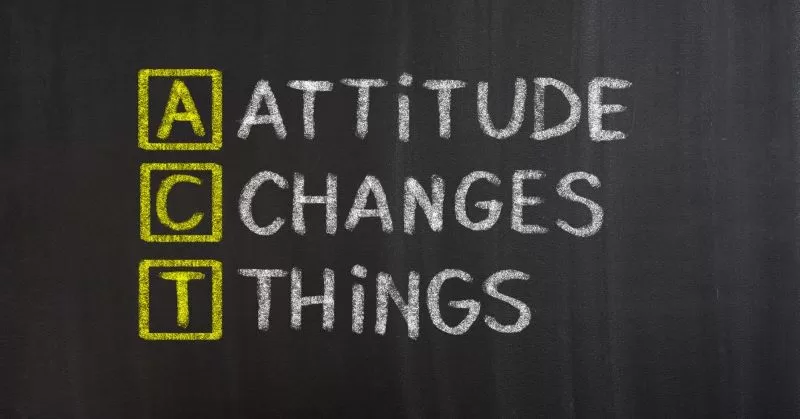
Introduction
How to be an influence on your generation. I will guide you through harnessing the power of the key to influence others effectively and conquer the procrastination habit that plagues so many. Think briefly: how many people do you encounter who seem to defer tasks and obligations endlessly? I want to let you know that procrastination is rarely the root of the issue; it is instead a manifestation of something more profound. At its core, procrastination often arises from anxiety, which is the actual underlying problem.
Therefore, it is crucial to understand that procrastination is merely a symptom, not the cause. In this journey, I will share strategies and insights to help you break free from procrastination and tackle your goals confidently and purposefully.
Market Forces
What strategies do you think you could use when persuading clients to purchase right away? What techniques can you use to encourage your children to tackle the task of cleaning their rooms right away? How do you motivate your teenagers to dive into their homework promptly? What methods do you use to encourage yourself to choose nutritious foods that benefit your health? And how do you inspire your body to engage in physical activities that will enhance your health without delay? These questions hold great significance. Once you discover the answers, you will uncover the key to influencing others and yourself.
So, what is the underlying secret to being able to sway people? Recognising that everyone is driven by their unique motivations is essential. People often act based on a single core reason rather than multiple motives, allowing emotions to guide their choices. For instance, many eat healthily to improve their well-being or exercise to avoid lethargy and health risks. Recognising this can be beneficial, especially in business.
Creating a welcoming environment can inspire clients to engage with your services. Thoughtful design, empathetic customer service, and a sense of community enhance client experiences, fostering stronger relationships and mutual growth.
Create An Environment.

People tend to act primarily out of self-interest rather than altruism. This reality raises an important question: How can you foster an environment where you, the people you aim to serve, and your collaborators can genuinely thrive and develop? What steps can you take to create a setting that inspires everyone to pursue actions aligned with their best interests? Is not that a thought-provoking question? The key to unlocking this potential lies in understanding that having the right attitude is fundamental, regardless of the specific circumstances or facts. To begin with, it is crucial to recognise the importance of cultivating a positive and growth-oriented mindset.
When your attitude is aligned with a desire for growth and mutual benefit, the situation’s specifics may become less significant. Instead, your perspective transforms the way you approach challenges and opportunities. By prioritising a positive attitude, you create a communal environment where people feel motivated to engage, collaborate, and ultimately succeed personally and collectively. Thus, it is essential to focus on developing this right attitude as a first step towards fostering a thriving community.
Why Attitude is Important
The right attitude is essential, regardless of the challenges we face. A correct mindset is crucial, whether it’s distressing news, job loss, financial setbacks, or bankruptcy. When faced with realities, it comes down to your perception. You may witness events directly or receive information audibly. Once you process the situation, you frame it, influencing your perspective and emotional response. This mental framing acts as a lens that shapes your understanding and reactions. The frames we construct around our experiences guide our focus and outlook on life.
Frames create focus. Adding a frame around a photograph directs the viewer’s attention to the content inside. This idea applies to how we perceive events and facts in life. Each point is a canvas waiting to be framed, guiding our focus toward its significance. Recognising that every situation reflects positive and negative aspects in our perspective is essential. Consider a loaf of bread—can you find a slice with only one side? Just as a coin cannot exist as a single-sided entity, each scenario presents dual dimensions.
This principle extends to our experiences, much like a two-sided sheet of paper. Each fact requires understanding within its broader context. Recognising this balance of perspectives is essential for a nuanced view of the world, prompting us to delve deeper and appreciate the complexity of the truths we encounter. Every aspect of life has positive and negative qualities. Joy or benefit often comes with risks or drawbacks. This duality reflects the complex nature of reality, where experiences and opportunities intertwine with advantages and challenges. Life is rarely straightforward.

Manufacturing Faith or Doubt
That framing can shape your beliefs when you frame a particular fact within a specific context. This process can lead to the development of either faith or doubt, a concept that most people find perplexing. It is essential to take a moment to digest this idea, as it is not commonly understood. Faith and doubt are not merely opposites; they are both variations of belief. Many people mistakenly consider faith a pure affirmation and view doubt as a lack of belief. However, this perspective misses a crucial point: doubt is not simply the absence of belief.
Instead, faith represents a strong belief in an outcome that aligns with your desires, while doubt signifies a belief in an outcome you prefer to avoid. This nuanced understanding of belief enables us to navigate the complexities of our thoughts and emotions more effectively. Doubt arises when you place greater faith in the adverse outcomes you fear rather than the positive ones you hope for. Both doubt and faith are forms of belief, each holding significant power over your emotions and mindset. When you consciously focus on a situation’s uplifting and encouraging aspects, you cultivate belief and faith in yourself.
In contrast, if your attention veers toward the troubling and discouraging elements of what you have heard or experienced, feelings of doubt and sadness can easily take root. Recognising that external circumstances do not dictate happiness and unhappiness is essential. The amount of money in your bank account does not determine your joy, nor does a lack of financial resources solely bring about your sorrow. Instead, your perspective and the narratives you weave around these experiences shape your emotional reality.
Happiness
Your physical health or illness does not merely dictate happiness and sadness; instead, they are influenced by how you choose to focus on these circumstances. Your emotional state is shaped by the beliefs you continuously construct regarding the events and experiences in your life. It is not the external events that alter your feelings; instead, it is the internal dialogue and perception you maintain in response to those external realities. This powerful mental focus guides you to foster specific beliefs about your world. These beliefs are dynamic; they evolve and move with you rather than remaining fixed in one place.
Ultimately, this conviction and the intense focus you maintain in your mind gradually permeate down to your heart. This transition gives birth to a powerful sensation we recognise as feelings. These feelings, in turn, serve as the driving force behind all your actions, influencing your choices and the paths you take.
Motivation

Rising early in the morning can be a choice driven by your desires and intentions. If the motivation to wake up is not there, it is perfectly acceptable to linger in the comfort of your bed a little longer. Motivation is deeply intertwined with our emotions—yours, mine, our children’s, our partners, and even the people we engage with in professional settings. Their feelings influence each person’s drive in one way or another. When we talk about emotions, it is fascinating to consider what they are. Emotion can be defined as energy in motion; it transforms a thought or a situation into a feeling.
This energy can either propel us into action or hold us back, creating barriers to our progress. Understanding the dynamics of this emotional energy is crucial, as it plays a significant role in navigating our lives and interactions with others. Imagine holding a focus within your mind, a vivid vision that stirs a deep feeling within your heart. But what truly shapes those emotions? It all hinges on the belief you cultivate—whether you nurture manufactured faith or allow doubt to creep in. When you foster manufactured faith, the feelings that arise in your heart transform into a powerful sensation known as anticipation.
Anticipation is not just an emotion; it is one of the most beautiful and precious gifts you can give yourself. It embodies the enthusiasm and optimism you feel when envisioning a favourable outcome. Expectancy is the vibrant energy coursing through you, igniting your spirit as you look forward to a future that you believe will bring you joy and fulfilment. It is the thrill of possibility, the hope that what lies ahead is not just suitable but truly desirable.
Yes. We are waiting with “emotion”